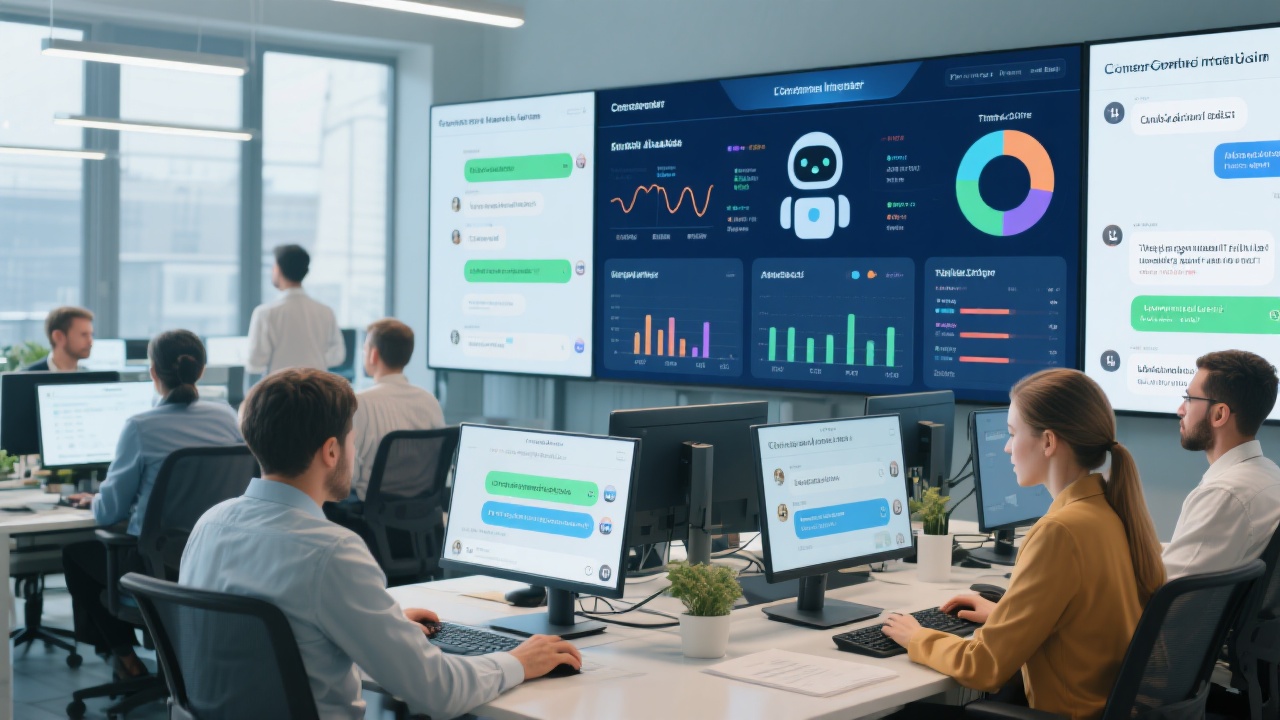 400-076-6558智领未来,外贸超级营销员
400-076-6558智领未来,外贸超级营销员
 400-076-6558智领未来,外贸超级营销员
400-076-6558智领未来,外贸超级营销员

In the age of globalization, emerging markets offer a wealth of opportunities for businesses looking to expand their horizons. However, these markets also present a unique set of challenges, centered around language and cultural barriers. According to recent market research, more than 70% of global consumers prefer to purchase products and services offered in their native language. This statistic highlights the importance of localizing marketing content to effectively reach potential customers in emerging markets.
Traditional localized content creation methods are often time-consuming, labor-intensive, and costly. A typical marketing team may need up to a week to produce a batch of high-quality localized marketing materials. In contrast, AB Ke AI Content Factory can complete the same amount of work in just one day, significantly reducing the time and resources required for market entry.
The core of AI-driven localized content generation is combining the BERT (Bidirectional Encoder Representations from Transformers) model with real-time data. The BERT model is known for its ability to understand the context and semantics of text, and plays a vital role in analyzing and processing different languages. By leveraging BERT, AI systems can generate content that is not only grammatically correct, but also contextually relevant.
Real-time data further improves the accuracy of content generation. It enables AI to adapt to the latest market trends, consumer preferences, and cultural nuances. For example, in the fashion industry, AI can use real-time data on emerging style and color preferences in a specific market to create marketing content that resonates with local consumers.
| Technical components | Function |
|---|---|
| BERT Model | Understand text context and semantics to generate accurate content |
| Real-time data | Adapt content to current market trends and consumer preferences |
Cultural adaptation is a key factor in the success of emerging marketing. AI systems are equipped with advanced algorithms that can identify and analyze cultural norms, values, and taboos. For example, certain colors, symbols, or phrases may have different meanings in different cultures. By analyzing large amounts of cultural data, AI can ensure that marketing content does not inadvertently offend local consumers.
In addition to avoiding taboo topics, AI can also improve the affinity of content by incorporating local cultural elements. For example, in marketing campaigns targeting the Southeast Asian market, AI can suggest adding local festivals, traditions or popular figures to the content to increase the affinity and appeal of the content.

Let’s look at some real-world examples from emerging markets such as Southeast Asia, Latin America, and Africa. In Southeast Asia, a consumer electronics company used AB Customer AI Content Factory to generate localized marketing content for various countries in the region. These AI-generated marketing contents were tailored to local language and cultural preferences, increasing its website traffic by 30% and sales by 20% in three months.
In Latin America, a food and beverage brand used artificial intelligence (AI) to create engaging social media posts in multiple local languages. The campaign not only increased brand awareness, but also increased customer engagement by 40%. In Africa, a software company used AI-generated content to promote its new products. The content was optimized for local search engines, ultimately increasing lead generation by 50%.
The difference between traditional methods and AI solutions is evident in terms of content production efficiency and operational costs. Traditional content creation typically involves multiple steps, including translation, cultural adaptation, and proofreading. This process can be slow and prone to errors, especially when dealing with multiple languages and markets.
On the other hand, artificial intelligence solutions can automate many of these processes. AB Ke AI Content Factory provides year-round automated operation services that can continuously generate and optimize marketing content based on real-time data. This not only reduces the need for large internal marketing teams, but also ensures the relevance and timeliness of content.

AI has a bright future in the field of localized content generation. As AI technology continues to develop, we can expect more accurate and sophisticated content generation capabilities. For example, AI may be able to generate personalized marketing content for consumers based on their browsing history, purchasing behavior, and cultural background.
In the long run, AI-driven localized content will become an important part of a company's global marketing strategy. It will help companies build a stronger chain of trust with global buyers by providing them with relevant, high-quality content that is in line with their culture.
In summary, AI-driven localized content generation will bring disruptive changes to companies seeking to expand into emerging markets. By leveraging BERT models, real-time data, and advanced cultural adaptation algorithms, companies can overcome language and cultural barriers, improve marketing efficiency, and build brand influence in a cost-effective manner.
Don’t miss the opportunity to revolutionize your global marketing strategy. Click here to learn more about how AB Ke AI Content Factory can help you generate high-quality localized marketing content and drive business growth.
.png?x-oss-process=image/resize,h_100,m_lfit/format,webp)
.png?x-oss-process=image/resize,h_100,m_lfit/format,webp)

.png?x-oss-process=image/resize,h_100,m_lfit/format,webp)
.png?x-oss-process=image/resize,h_100,m_lfit/format,webp)
.png?x-oss-process=image/resize,h_100,m_lfit/format,webp)
.png?x-oss-process=image/resize,h_100,m_lfit/format,webp)
